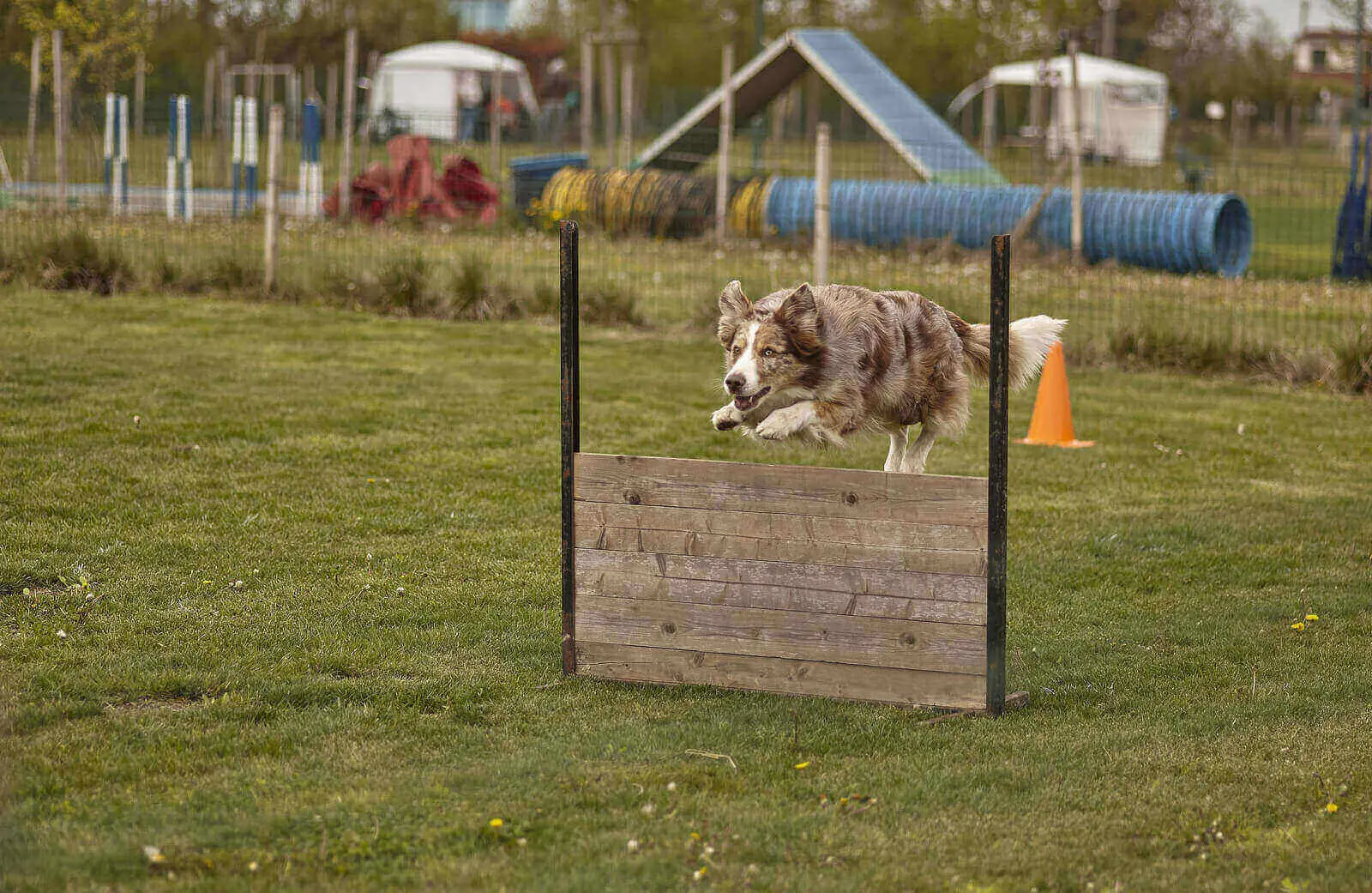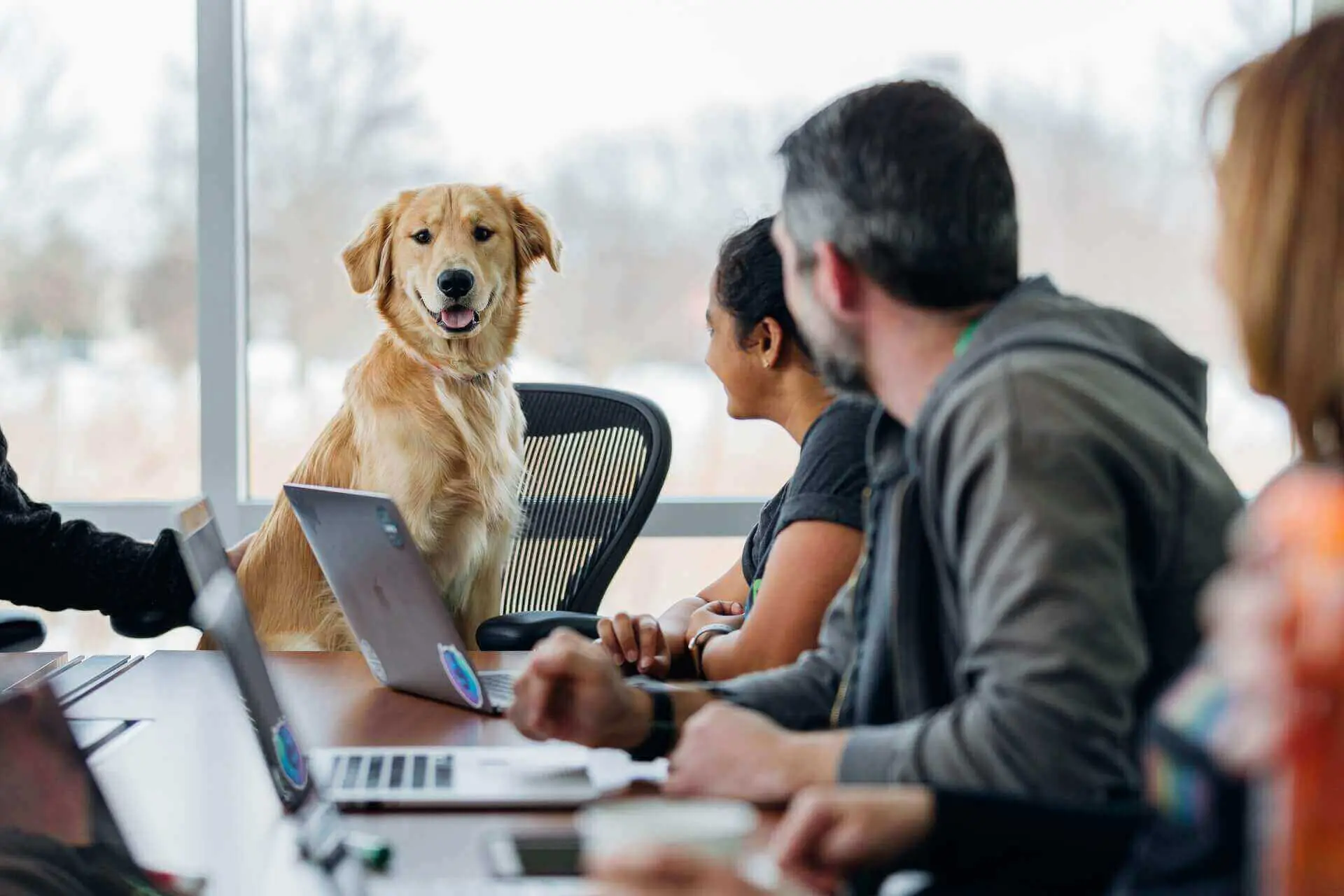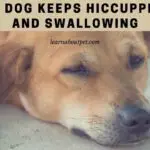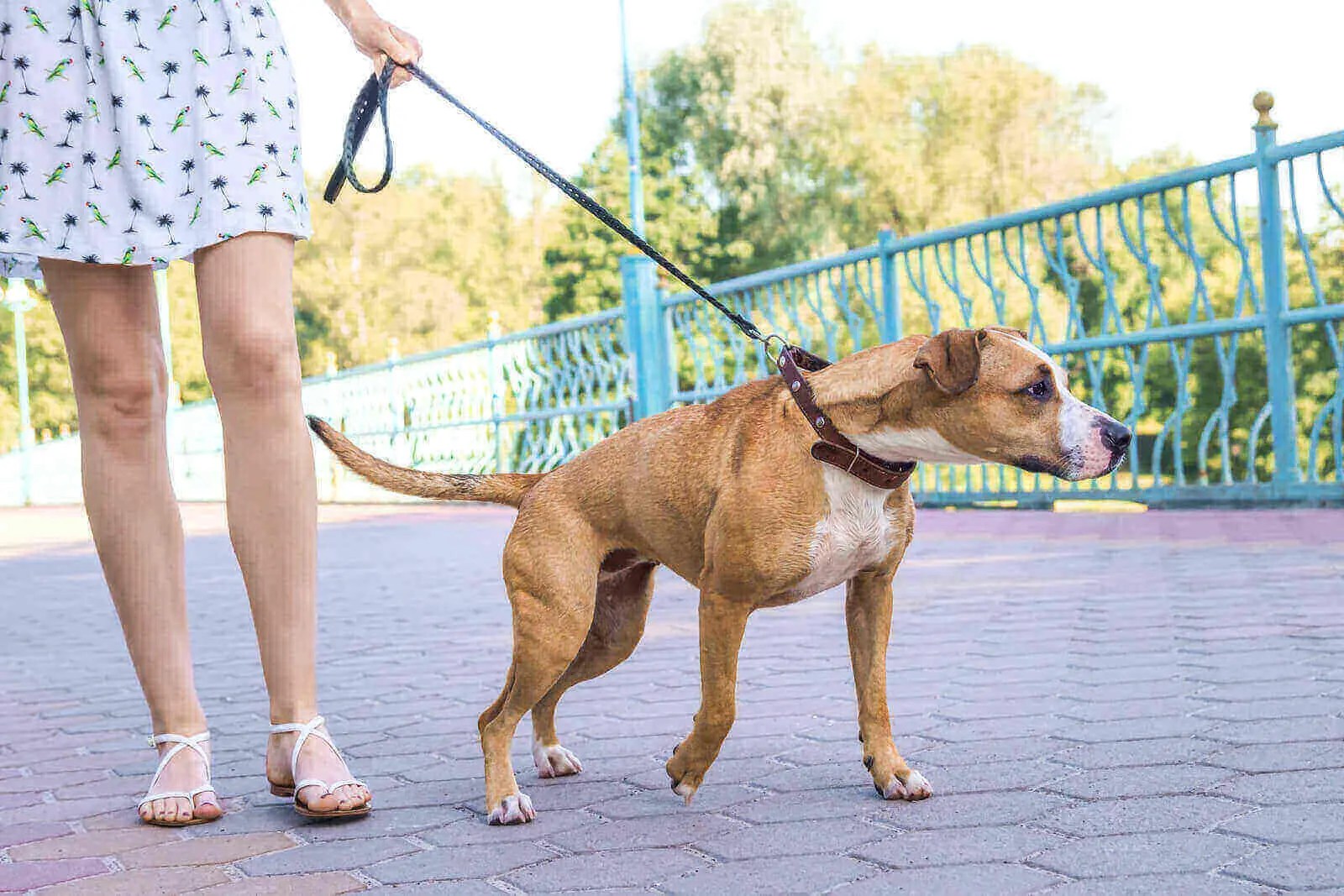Is your newly adopted dog not eating? I understand it’s quite stressful to see your new family member having trouble fitting into your family. It is okay to be concerned, nevertheless, I want to assure you that it is always normal for a newly-adopted dog to not eat in his first few days of moving to a new home.
I understand the excitement that comes with bringing home a newly adopted dog and how you are eager to start a relationship with your new companion. It is fulfilling to be that person who provides a home for a rescue dog, however, rushing to create that relationship may create more fear and anxiety in your dog.
Why is your newly adopted dog not eating? Your newly adopted dog will require time to earn your trust and adjust to the new environment especially if he has been a victim of abuse or neglect previously. You will have to be patient with him as he learns his new environment and in a few days, he will be acting like he has been part of your family forever.
As your newly adopted dog settles down in his new home, you may realize that he is withdrawn, stressed, and not eating. In most cases this is normal and your newly adopted dog will be okay in no time. Although sometimes a newly adopted dog not eating, may be a sign of a serious health issue that requires appropriate intervention.
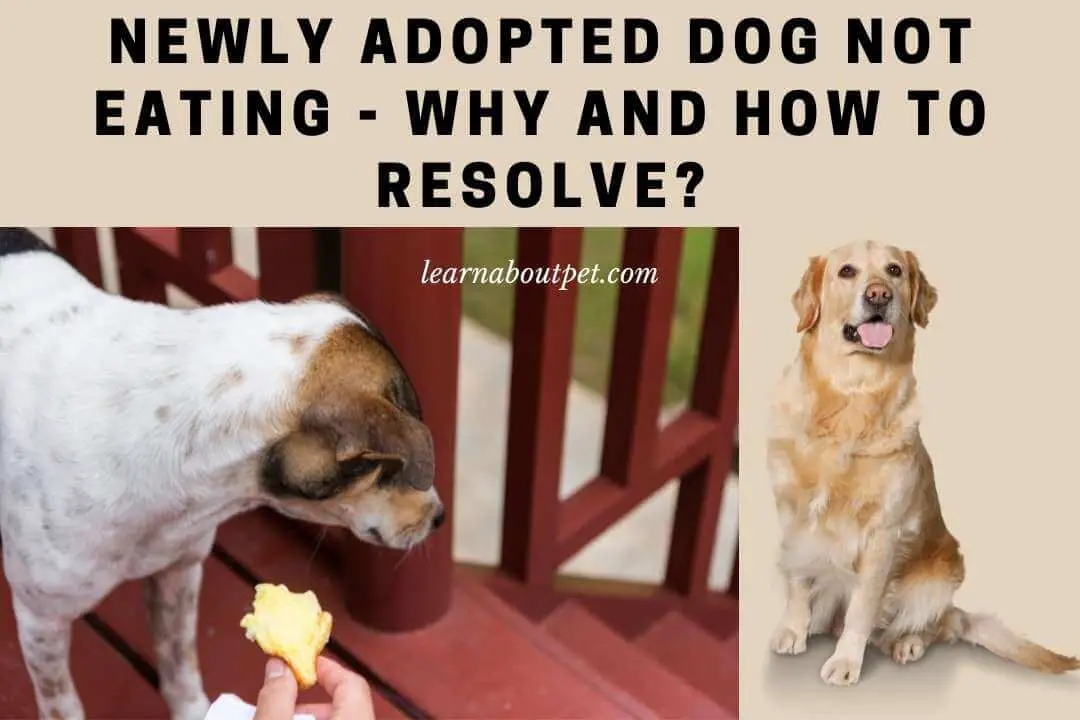
In this article, I will discuss some reasons why your newly adopted dog is not eating and how to get a rescue dog to eat.
Reasons Why Your Newly Adopted Dog Is Not Eating
As a result of previous experience, a rescue dog may not be able to adjust properly to his new home. One of the obvious signs that show that your newly adopted dog is having problems adjusting, is that he may not be interested in food. The other sign is that your rescue dog may be obsessive with food.
You may be wondering why your rescue dog is obsessed with food. This is because dogs who were previously from a shelter or were alone tend to be obsessive with their food because they are used to getting little food and sharing it with other dogs.
In this case, your rescue dog may take time to understand that he will always have enough food.
Although a newly adopted dog not eating or being obsessive with food may be normal, sometimes it is a sign of an underlying health issue. So, let us explore why your newly adopted dog is not eating
The Dog Is Yet To Adjust To The New Environment
It’s obvious that when there is a change in the environment a dog will be hesitant to engage in any activity. Even we as human beings behave likewise in a new environment. A new environment can make your newly adopted dog not eat.
The first few days of a newly adopted dog will be exploring and learning the new environment. In cases where the dog was from an abusive home, he will take time to gain the trust of his new owners.
So, as his new owner, be patient with him and help him feel safe in your home. Within no time, the dog will be back to eating and even becomes free to interact with all his family members.
To help him with the transition, have a routine feeding schedule and spend quality time with him. Also, make sure you are always present to encourage him to eat during his feeding time.
Remember the first few days of a newly adopted rescue dog is important to you and your dog. Be tolerant of your dog and provide him with ample time to settle into the new environment.
The Dog Is Stressed
Stress is another common reason why your newly adopted dog is not eating. A newly adopted dog can only voice his feelings by restraining himself from doing anything including eating any food. A stressed dog will also have other signs like anxiety, not peeing, not pooping or he becomes obsessed with food.
The new environment is a stressor to a rescue dog, therefore as a new owner try and find a safe space within your surroundings that your rescue dog is comfortable in.
To further reduce stress prompted by the changes in the environment, try and treat your dog by either exercising or petting him to distract him/her from the stressor. This will help a lot not only in getting rid of stress in your newly adopted dog but also in creating a lasting bond between the two of you.
The Food Is Different
Your newly adopted dog is not eating because the food you are offering is different from the one he is used to. Changes in a dog’s diet can cause stress making your rescue dog not interested in food. Most rescued dogs avoid eating new foods.
Another possibility is that your rescue dog is used to human food and will only eat cooked human food. This may be the reason why your rescue dog won’t eat. If you have tried other food supplements and still realize that your dog won’t take any dog food then, try and feed him with your family food and see if it likes human food.
Although it’s not advisable to feed a dog with human food, use human food mixed with dog food to encourage him to eat. Afterward, change your dog’s food gradually and till he is comfortable taking dog food only.
Take time to understand the kind of food your newly adopted dog is used to and slowly transition him to other types of food. If by any chance your rescue dog only eats human food, give him mixed food until he becomes used to the dog food.
Besides that, you can add tasty food like chicken broth to their diet to encourage them to eat.
The Dog Has Dental Problems
Just like human beings, dogs are always reluctant to eat when they have a toothache. Dental issues like swollen gums, tooth decay, and cracked teeth can cause your newly adopted dog not to eat.
To be sure that your newly adopted dog not eating is a result of dental issues, check his mouth for any of the above signs if he allows, or check under his eyes for any swelling.
Once you are sure that your rescue dog won’t eat because he has dental problems, you must visit a vet to help you take care of the dental issue.
The Dog Is Sick
A rescue dog won’t eat if he has an underlying health issue. Loss of appetite can be caused by kidney failure, a blockage in the digestive system, pancreatitis, or other health problems.
According to Krissy Howard of cuttness.com, underlying health illnesses like cancer, kidney failure, and liver disease can suppress a dog’s appetite.
If your newly adopted dog is not eating and he has other accompanying symptoms, like, general body weakness, vomiting, groaning, and dehydration, then most probably your dog suffers from an underlying health condition.
In this case, a visit to the vet is essential to get the right diagnosis and get the right intervention.
Phases Of Getting A Rescue Dog To Settle Down
A newly adopted dog not eating is a sign of him not being able to settle in his new home properly. The following steps will help your rescue dog settle down properly in his new environment.
First, introduce your rescue dog formally to all your family members. This way your dog will feel safe around your family members and will easily adapt to the new environment.
Secondly, identify and allocate a safe space for your rescue dog where he will be spending his time. This will help remove his stressors and make him feel safe at home.
Also, show your rescue dog around the house. By showing your newly adopted dog all places in his new environment, he will be free to start identifying places that he is comfortable, hence feel at home.
Change your dog’s food steadily. Once you have identified the kind of food your rescue dog loves, start adding gradually other types of foods to ensure that he gets a balanced diet. An abrupt change in dog food can take you back to where you started, therefore avoid sudden changes of your rescue dog food
Finally, engage your dog in routine activities. By doing so your dog’s mind will be occupied and he will be looking forward to his next meal.
How To Get A Rescue Dog To Eat?
There are several ways to get your rescue dog to eat. If your rescue dog has not been eating since you brought him home try any of these ways
Change Your Dog’s Diet
Try a new recipe and see if your dog will start eating. Perhaps your dog is used to soft food, cooked food, or dry food. Try all available food, even cooked dog food as long as your dog will get to eat. However, be careful to give him a balanced diet so that he can get all the nutrients his body requires.
Include Tasty Food In Your Dog’s Diet
If your rescue dog won’t eat dry food, try to add some tasty food like chicken soup to their food. Most dogs like chicken broth and therefore if you add `some to their food they will be motivated to eat.
Have A Feeding Schedule
Once your rescue dog has taken his first meal, get him on a feeding schedule. Having a routine feeding schedule will greatly help in encouraging your dog to eat. Also being consistent with your feeding schedule will greatly help your rescue dog who is obsessive with food.
Try Hand Feeding You Dog
If your rescue dog is not interested in food, try hand-feeding him.
Engage Your Dogs In Exercise
Take your dog for a walk before feeding. This will make your dog hungry and be motivated to eat
Take Your Dog To The Vet
If all of the above ways do not make your newly adopted dog eat, then make an appointment with your vet as soon as possible. Your dog may be having other underlying health issues that require a proper diagnosis by a professional.
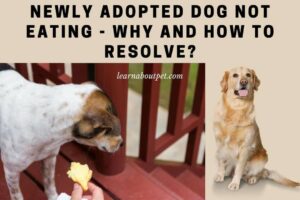
How Long Does It Take For A Dog To Adjust After Being Adopted?
Every dog is different. Some adjust easily, while others take longer. Many dogs come into our care from a shelter environment, and this can be very stressful (especially for the more timid dogs).
The majority of people we speak to say their dog needs at least 5 days to settle in, but some need as long as 3 weeks. With the majority of our dogs, we can be sure that they are 100% settled after a week.
Some dogs take longer to settle in than others and this is usually because there was something going on in their previous home (e.g., house training accidents, separation anxiety).
Every dog has different experiences before coming into the care of CCDDI and of course some dogs have a much worse start in life than others. Therefore, it is not possible for us to predict how quickly any individual dog will settle into their new home and family.
Each dog has different needs. Some are very calm and easy going right away, while others take more time to adjust and get used to being part of an active family.
The majority of dogs are able to settle into their new home within a few days because most dogs have little problem adjusting to the routines of being part of an active family. However, there will always be exceptions and some dogs need more time to adjust than others no matter how well they get on with their new owners.
How Long Does It Take For An Adopted Dog To Eat In A New Home?
Again, this is down to each individual dog and their previous experiences.
The majority of dogs are able to eat with a family after the first few days in their new home. Some take longer than others though, so please be patient. This does not mean that they do not like their food; it simply reflects how much stress they have experienced in their life so far.
Every dog is different, some settle in very quickly and are happy eating with the family from day one. Others take a little longer to adjust but again most dogs soon get used to being part of an active family and are comfortable eating around new people after a few days at home.
If your adopted dog has not started eating in the house after a few days, it is important that you do not force them to eat inside at this stage. You need to allow your new dog to take its time.
If your dog needs longer than a week or two it is OK as well (dogs can settle into their home and routine at different times). If you start to get concerned about your dog not eating in the house after a few weeks then please speak to us for advice.
What Do You Feed A Newly Adopted Dog?
The majority of dogs that come into our care have previously been on a commercial dog food diet. It is important to find a good quality balanced diet that suits your dog’s age and lifestyle so we usually recommend that you take an appropriate brand with you when you collect your new friend from us. We can give you more advise on the best choice for your new dog when you come to visit us.
We also recommend that you transition your dog onto a natural diet when you get them home. You should still feed commercial dog food initially, but add some raw meaty bones to help with the transition. When changing diets it is worth speaking to a qualified professional about how best to do this as it is important that you do it in a way that suits your dog’s needs and tastes.
Should I Hand Feed My Rescue Dog?
No. Hand feeding should only be done in small amounts to help settle your new dog in during the first few days at home (this is called “hand feeding”). You can also offer a small meal by hand to calm a very nervous dog or puppy but this should not be done on a regular basis.
Although you may be used to hand feeding a young puppy, it is actually very bad for a growing dog as it can cause bloat and other long term problems.
After the first few days at home your new dog should be eating from its food bowl. If it is not eating on its own at this stage then please contact us for advice.
How Do You Make A Rescue Dog Feel At Home?
The best thing you can do to help your new dog settle in at home is to be patient and make sure that he or she has a space where it feels safe and secure.
Some dogs will take longer than others to adjust to their family. Your new dog needs time to learn about the new environment, smells, people etc… but most dogs adapt very well in a short period of time.
If your dog still seems nervous or anxious after spending some time with you, this is not unusual. It can take time for some dogs to feel settled and secure if they have experienced difficult situations in the past (for example, living on the streets). This does not mean that your dog is “stupid” or “bad”. Some dogs will take longer than others to learn new things and it can take time to form a bond with them.
Please be patient and work at building a bond over time so that you can have a rewarding relationship with your rescue dog in the long term.
What Diet Do You Recommend For My Adopted Dog?
There are many diets on the market and it is probably best to discuss different options with a qualified professional before making your decision.
We will provide you with advice about which brands we use when hand rearing puppies, however this may not be suitable for an adult dog’s diet.
It is important that you find a good quality balanced diet that suits your dog’s age and lifestyle. Please do not change your dog’s diet suddenly; it is always best to make changes gradually so that you can monitor any adverse reactions.
Final Verdict – Newly Adopted Dog Not Eating
Adopting a rescue dog is a noble thing to do because you are not only saving a life but you are also offering a dog with a traumatic past a second chance to belong to a loving family. Most rescue dogs have had an awful past or have been abandoned by their previous owners and so they need some time before adapting to their new home.

A new rescue dog owner needs to be patient and be tolerant with his dog.
A newly adopted dog not eating can be a sign of different issues. Your rescue dog is not eating because he is yet to adapt to the new environment, he may be stress, sick or the food is different from what he is used to. Try and identify the reason why your rescue dog is not interested in food and help him overcome the issue.
If, after doing all the discussed ways to make your rescue dog eat, your rescue dog is still not eating, make an appointment with your vet.
Congratulations on adopting a rescue dog. I hope you can now get your rescue dog to eat.

Welcome to Learn About Pet. My name is Rajkumar Ravichandran and I love all pets, travel, and amazing food. I write about my passion and personal experience caring for multiple pets in this blog! ❤️
Post Disclaimer
DISCLAIMER: THIS BLOG OR WEBSITE, "Learn About Pet", DOES NOT PROVIDE YOU WITH MEDICAL ADVICE AND IS NOT A SUBSTITUTE FOR MEDICAL ADVICE. ALWAYS GET IN TOUCH WITH YOUR PERSONAL VETERINARIAN AND USE INFORMATION HERE AS GENERAL ADVICE.
The information, including but not limited to, text, graphics, images and other material contained on this website are for informational purposes only. No material on this site is intended to be a substitute for professional veterinary advice, food recommendation, diagnosis, or treatment. Always seek the advice of your veterinarian or other qualified health care provider with any questions you may have regarding a medical condition or for pet food related questions.
